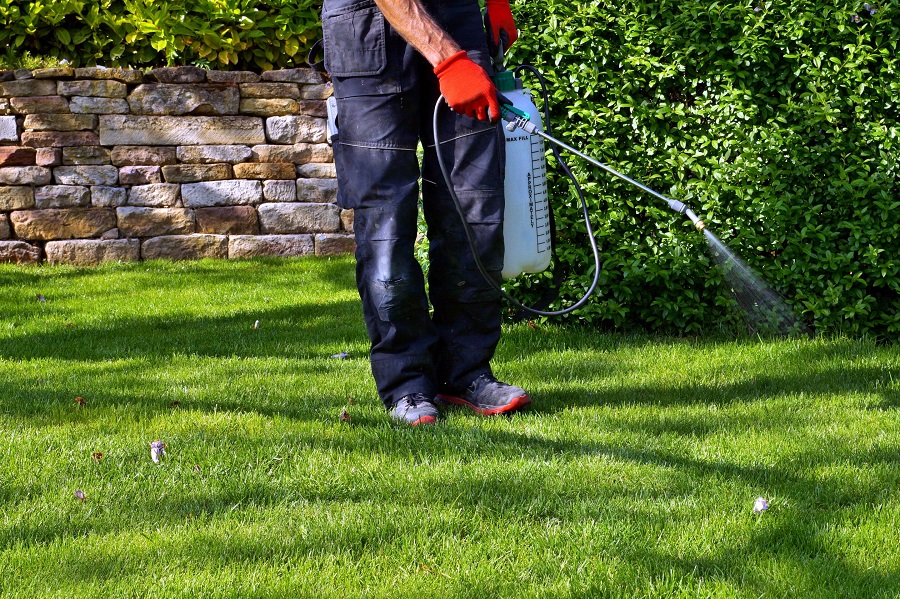When bugs and critters invade your home, your first instinct might be to eliminate them as quickly as possible by any means necessary. However, more homeowners are recognizing that effective pest removal doesn’t have to come at the expense of environmental health, family safety, or the well-being of beneficial insects and wildlife.
Choosing a sustainable pest control specialist requires asking the right questions and knowing what to look for in a truly environmentally responsible company. Let’s walk through each factor to consider before making a decision:
Understanding What “Green” Really Means
Before you start your search, it’s essential to understand that the terms “green,” “eco-friendly,” “organic,” and “natural” aren’t regulated in the industry. Any company can declare itself to be environmentally conscious without actual practices to support its claims.
An ecologically responsible professional views pest management as a holistic process rather than a one-size-fits-all chemical solution. Moreover, green pest management experts are most likely to use Integrated Pest Management (IPM) methods, which prioritize prevention, monitoring, and targeted treatments over blanket chemical applications.
Certifications and Continuing Education Matter
Start by asking about certifications. Reputable, sustainable pest control firms invest in training and credentials that demonstrate their commitment to eco-friendly practices. While state licenses are mandatory, additional green certifications show that a company goes beyond minimum requirements. So, look for technicians with:
- GreenPro certifications
- LEED certifications
- National Pest Management Association certifications
- IPM training certifications
Moreover, don’t hesitate to inquire about their ongoing learning opportunities. The landscape of eco-friendly pest control is continually evolving with the development of new techniques and products. Companies that prioritize continuing education for their staff are more likely to offer the latest industry-recognized and sustainable solutions.
After verifying certification and training, it becomes easier to compare the quality and professionalism of each candidate.
Ask About Their Product Arsenal
Once you’ve verified a candidate’s credibility, the next step is to learn about the materials they use. Qualified green pest control experts should be able to explain their product choices in detail, including active ingredients, environmental impact, and safety profiles. They should offer transparency about every substance they bring into your home.
Look for companies that prioritize botanical oils, microbial insecticides, and other low-toxicity options. Ask about their approach to conventional pesticides—an environmentally responsible company will use them only as a last resort and will clearly explain why they’re necessary in specific situations.
They should also be willing to provide Safety Data Sheets (SDS) for any products they use. These documents outline critical details, including:
- Ingredients
- Health risks
- Fire, explosion, and reactivity information
- First aid guidelines
- Storage, handling, and disposal procedures
The IPM Approach: More Than Just Spraying
With product transparency clarified, you can focus on the diagnostic and preventive aspects of their services. Remember that eco-friendly pest management specialists don’t just show up and spray away at your home. During your initial consultation, they perform a thorough assessment to identify the pests and conditions on your property that attracted them.
They should ask about your concerns, discuss your tolerance for various treatment methods, and clearly explain how they’ll address the root cause of your pest problem. Ask them to walk you through their IPM process. While it may vary on a case-by-case basis, their general strategy should include:
- Identification of pest entry points
- Recommendations for structural repairs or modifications
- Advice on sanitation and moisture control
- A tailored plan for monitoring pest activity over time
If a company offers only solutions that heavily rely on chemical treatments without discussing prevention and exclusion, it’s best to continue searching for other candidates.
Long-Term Prevention and Follow-Up
Another factor to evaluate is their follow-up protocols and prevention strategies. Sustainable pest control isn’t about quick fixes—it’s about creating long-term solutions that prevent future infestations. Ecologically responsible pest control experts should provide actionable advice on pest-proofing your home, such as sealing entry points, managing moisture, and storing food properly.
Inquire about their warranty or guarantee programs. Companies confident in their methods will stand behind their work. Furthermore, ask about the frequency of follow-up visits and whether they include re-inspection and monitoring as part of their service package.
Protecting Beneficial Species
Besides lasting prevention strategies, consider how they protect pollinators and beneficial insects. Not all insects are harmful; bees, butterflies, ladybugs, and other beneficial insects play crucial roles in our ecosystem, and eco-conscious specialists understand that.
Green pest management firms use targeted treatments that minimize impact on non-target species. They avoid broad-spectrum insecticides, schedule treatments to avoid peak pollinator activity, and use physical barriers and exclusion methods whenever possible. If a company can’t explain how it protects beneficial species, its commitment to environmental responsibility may be superficial.
Trust Your Instincts
Finally, trust your gut. A reputable green pest control expert will be patient with your questions, transparent about their methods, and respectful of your concerns. They should never pressure you into unnecessary treatments or dismiss your desire for environmentally friendly options.
Keep Pests Out the Green Way With the Right Partner
Working with a pest control company specializing in eco-friendly solutions is an investment in your home’s health and the future of the environment. By asking the right questions and knowing the qualifications to look for, you can find an expert who effectively eliminates invasive bugs and critters while honoring your commitment to sustainability. The result is a pest-free home you can feel good about—for your family, your community, and the planet.



